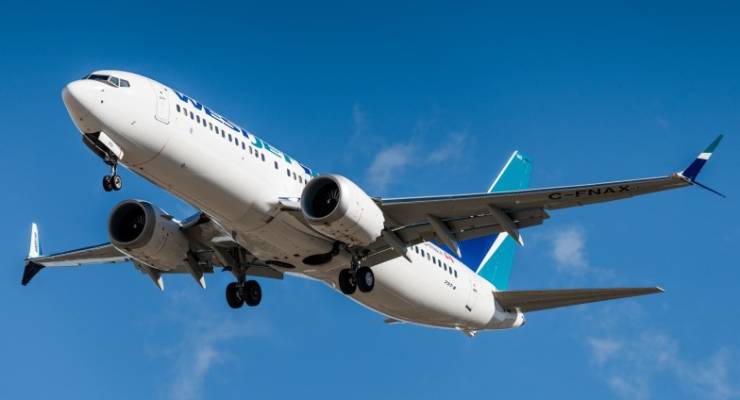
In the wake of a major disaster, words matter. And for Boeing to say it grounded the troubled 737 Max 8 aircraft in “an abundance of caution” was a particularly unhelpful choice of words.
Within just five months, two of the new aircraft crashed minutes after take-off — in Indonesia and Ethiopia — killing a total of 346 passengers and crew.
Four days after the second crash — when more than 40 countries around the world had already banned the aircraft and Boeing shares lost a reported $35 billion in value — US authorities finally decided to ground the Max 8 and Max 9 models. Boeing CEO Dennis Muilenburg said the company supported this step “out of an abundance of caution”.
But respected writer John Beveridge argues that decision was several days too late. “As for acting out of ‘abundant caution’ in grounding the planes,” he writes, “the time for that was after the first crash, not the second, and certainly not after most other regulators had already acted.”
This silly phrase seemed to gain favour in 2009 when White House senior counsel Greg Craig explained that, following a technical mistake, newly-inaugurated president Obama would retake his oath of office in an abundance of caution. Unfortunately it has now taken root in issue and crisis management as yet another example of shallow corporate jargon.
Following any crisis, words really matter. Think of airline owner Tony Fernandez after AirAsia flight QZ8501 crashed into the Java Sea: “I am the leader of the company. I take responsibility. The passengers were on my aircraft and I have to take responsibility for that.”
Or think of Starbucks CEO Kevin Johnson when two black men were arrested at a Philadelphia outlet while waiting for a friend: “The way that incident escalated, and the outcome, was nothing but reprehensible — and I’m sorry. I believe that blame has been misplaced. In fact, I own it. This is a management issue, and I am accountable to ensure that we address the policy and the practice and the training that led to this outcome.”
Or consider former Twitter boss Dick Costolo after a particularly egregious high-profile troll attack generated adverse publicity: “I’m frankly ashamed of how poorly we’ve dealt with this issue during my tenure as CEO. It’s absurd. There’s no excuse for it. I take full responsibility for not being more aggressive on this front. It’s nobody else’s fault but mine, and it’s embarrassing.”
No weasel words. No excuses. Just corporate and personal leadership.
The precise cause of the recent Boeing 737 Max 8 crashes may not be finally confirmed for months, likely followed by years of damaging law suits. So maybe “abundance of caution” was a phrase chosen to keep the lawyers happy.
Yet for a major aircraft manufacturer — where potential design failures must surely be right at the top of the list of obvious crisis risks — there should be a very clear and well-rehearsed crisis communication plan. And the right choice of words should be part of that plan.
Last year a Centrelink office in Adelaide went into lock-down after someone reportedly dumped a white powder on the floor in a public area. Emergency workers donned full protective gear before identifying that the mystery substance was in fact sugar. In that case, evacuating the building just might have been a legitimate use of the term “abundance of caution”.
Belatedly deciding to ground an aircraft after two terrible crashes was not.
This piece was originally published in Tony Jaques’ crisis-management newsletter Managing Outcomes.








An abundance of deaths due to scarce regard for your products safety. Perfect corporate hindsight and bullshit blame shifting, hopefully an abundance of compensation claims are coming your way Boeing.
Sort of a “Ford Pinto” scenario/response?
Cheaper to pay out “relatives of the deceased” than a recall?
Boeing has form doesn’t it? They launched the 787 “Dreamliner” onto the market with a battery arrangement that was prone to overheating and burning. They only grounded the plane and changed the battery setup after some near-misses that could have been planes going up in flames. The 787 is now an excellent plane. My daughter flew in one from Sydney to Singapore and speaks highly of it. But I think I’d give any new Boeing model a year or two to sort out the bugs before I’d fly in it.
John Beveridge is spot on when he says, “As for acting out of ‘abundant caution’ in grounding the planes,” he writes, “the time for that was after the first crash, not the second, and certainly not after most other regulators had already acted.”
I am also surprised regulators such as CASA weren’t all over this after the first crash with so many MAXs ordered for the Australian market. Too close to industry I suspect.
There is a lot to come out about this story. Basic design, certification, corporate governance, ineffective regulator, and safety management failed where they should not. Heads should be rolling at Boeing, starting at the top.
Corporate nsurance is a moral hazard – it inclines the irresponsible to indulge in reckless, feckless profit chasing .